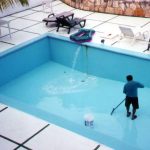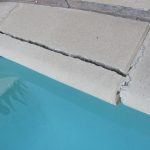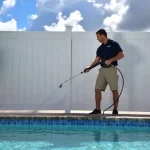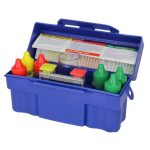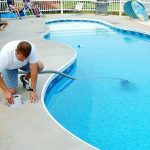Having a swimming pool is a great approach to have fun with friends and relatives. Maintaining a pool, though, goes beyond simple chemical balance or cleaning. Maintaining the safety, cleanliness, and completely operational state of your pool depends mostly on regular inspections. Early notice problems found by inspections save you money and guarantee that your pool stays a delight to use. Let’s explore why it matters and how often you should plan a pool inspection and equipment repairing.
Define a pool inspection.
A pool inspection is an exhaustive review of your pool and associated systems. It guarantees that everything in your pool is in good running condition, much like a health check for it. Professionals check the building, equipment repairing, water chemistry, and safety aspects of a pool during an inspection. They search for cracks, leaks, malfunctioning machinery, imbalanced water chemistry, and make sure that safety elements like drain covers and fences satisfy needed criteria. Regular inspections guarantee safe swimming conditions and help to avoid minor issues becoming costly fixes.
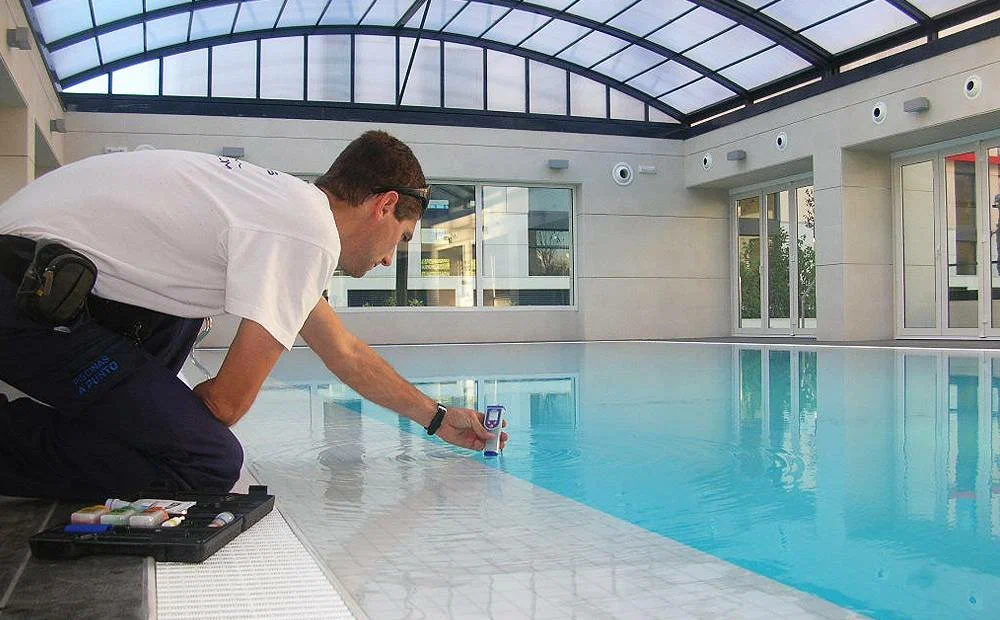
Why are pool inspections crucial?
Maintaining the safety and usability of your pool depends on pool inspections. They facilitate:
- Early on in their development, catch flaws before they become serious ones, therefore saving money over time.
- Maintaining balanced water chemistry and well operating safety equipment repairing will help to guarantee the pool is safe for swimmers.
- Through consistent maintenance, extend the lifetime of pool equipment repairing including filters and pumps.
Follow local safety rules especially for business pools. Ignoring inspections could result in unsafe swimming conditions, increased repair expenses, and possibly equipment repairing breakdown.
When should you plan a pool inspection?
Your pool type and use will determine how often you should check it:
Usually for home pools, one expert check once a year is plenty. You should, nevertheless, also take into account an inspection: Following extreme storms, which could compromise pool equipment repairing or construction,

Should you observe indicators of trouble, such equipment failures, water loss, or cloudiness of water?
Commercial pools
Usually quarterly or biannally, commercial pools call for more frequent inspections. Strict safety criteria and heavy use mean that regular inspections are absolutely essential to guarantee compliance and good operation. Local rules could additionally specify inspection times, so it’s important to keep updated.
Seasonal Exams
Pre-season: Get an inspection to guarantee everything is in working order before summer opens your pool. Following winter closure of your pool, look for damage and get it ready for the off-season. Indices Your Pool Needs an Inspection.
Even if a planned inspection is not due right now, some indicators point to an immediate check required:
- Cloudy, discoloured, or green water.
- Odd sounds from the filter, heater, or pump.
- Faster-than-average water loss, which would suggest a leak.
- Cracks or obvious damage to tiles, decking, or pool walls.
- uneven water temperatures or ineffective heating.
Should you find any of these concerns, immediately call a qualified pool inspector to handle possible issues.
Who Should Check a Pool?
Professional inspections are invaluable even if pool owners can do simple maintenance and visual inspections. Certified pool inspectors have the knowledge and resources to precisely evaluate water quality, find hidden leaks, and closely assess pool constructions. They might suggest required repairs or upkeep and offer an extensive report.
- Hiring a specialist guarantees you won’t ignore important problems that could get worse with time.
How Professionals Perform a Pool Inspection?
Every element of your pool is evaluated methodically by pool inspectors:
They look at the pool’s walls, tiles, and decking for cracks, leaks, and wear indicators. Additionally under inspection for stability is the coping around the edges.
The pump, filter, heater, and other parts are tested for correct running. Additionally checked are timers, valves, and chlorinators. Professionals test pH levels, chlorine balance, alkalinity, and calcium hardness to guarantee the water is safe for swimmers and won’t damage the pool. Inspecting fences, gates, pool covers, and drain covers helps to guarantee they satisfy safety regulations. Should water loss be suspected, specific instruments such as dye tests and pressure testers can identify leaks. This all-encompassing approach guarantees that your pool stays in great shape and helps to avoid little problems from getting worse.

Advantages of Frequent Pool Inspection
Frequent inspections have several benefits: Early problem discovery helps you prevent costly replacements and repairs. Good inspections help to lower the danger of mishaps, so guaranteeing the pool’s safety for swimmers.
- Routine equipment repairing helps longer equipment life by keeping machinery functioning effectively and so lowering wear and tear.Knowing your pool is in good shape lets you enjoy it free from concern.
- Preserving Your Pool Between Exchanges Pool owners can maintain good condition of their pool by following easy actions between expert inspections: Regular water level checks help to guarantee leak free conditions. Use a dependable home kit to weekly test water chemistry. Vacuum the floor, brush walls, and skim trash from the pool.
Check tools for odd sounds or indicators of breakdown. These preventative steps reduce the possibility of major problems and assist to preserve your pool.
In essence,
One of the greatest methods to guard your investment and guarantee that your pool stays functioning, clean, and safe is to plan frequent pool inspections. Aim for an annual inspection for homes pools; arrange quarterly or biannual checks for businesses pools. For a comprehensive assessment, always pay a professional; if you find indications of problems, don’t hesitate to call for an inspection. Being proactive helps you to enjoy your pool worry-free and save later expensive maintenance.


